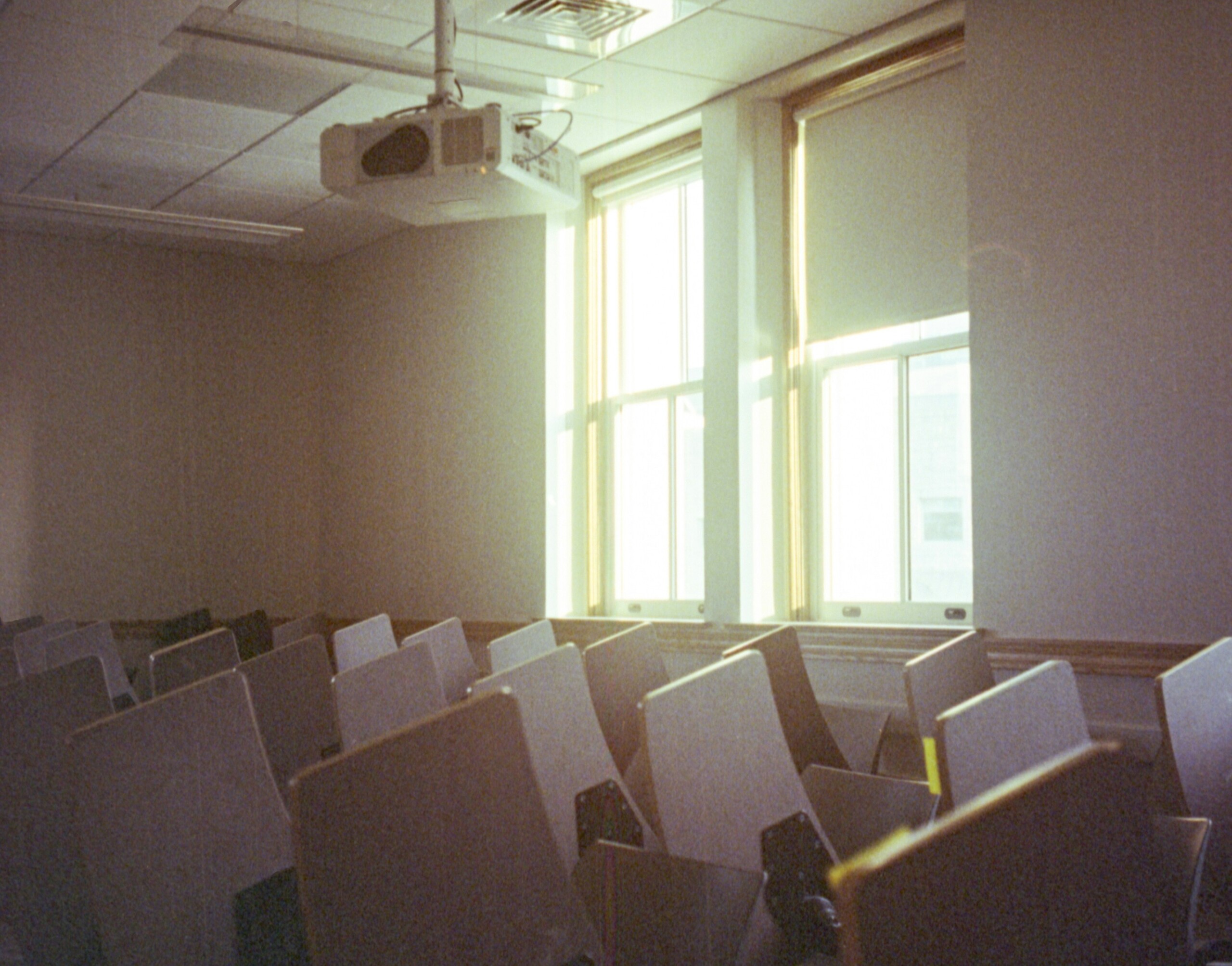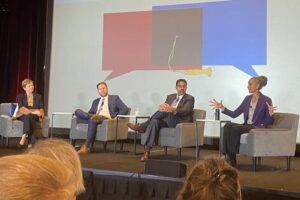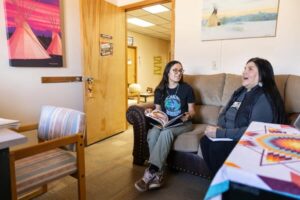
Confronting Education: A Manifesto for a World in Transition
By: Will Richardson
The world is shifting beneath our feet. Ecological collapse, social fragmentation, and political dysfunction are no longer distant threats; they are our daily reality. In this time between worlds, education stands at a crossroads. It can either cling to outdated paradigms that are contributing to our collective challenges or become a catalyst for transformation.
In moments of chaos and complexity, it becomes imperative that we clearly articulate what we believe. Beliefs anchor us—they clarify our values, direct our actions, and signal our commitments. The following seven belief statements comprise my personal manifesto for education to confront its complicity and to embrace a role in co-creating a more just and sustainable future.
Belief #1: A Cultural Shift is Urgent
We are living in a time between worlds. Driven to the brink by an unsustainable narrative of “progress,” traditional institutions and ways of living on the planet are collapsing; their replacements are emergent.
Our current systems, built on the premise of endless growth and human dominance, are unraveling. Education must recognize this liminal space—not as a temporary disruption but as a profound shift. By acknowledging the collapse of old narratives, schools can become spaces that nurture the emergence of new ways of being and relating.
Belief #2: Reconnection and Relationality is Key
Challenges like climate collapse, mis- and disinformation, state conflicts, political dysfunction, increasing inequity, and others are not “problems to be solved” by politics, technology, or even education; they are symptoms of much larger relational disconnects with one another and with all living things in nature. (The “metacrisis,” or the set of root problems behind all our major crises.)
These interconnected crises stem from a fundamental disconnection—from each other, from nature, and from a sense of shared purpose. Education must move beyond technical solutions and address these relational fractures. By shifting focus to fostering deep connections and a sense of interdependence, schools can help heal the root causes of our global challenges.
Belief #3: We Must Confront the Moment
Right now, education is not “in conversation” with these new realities. In fact, the way education (and other institutions) is responding to the “crisis” is the crisis.
The vast majority of our communities, and thereby our schools, have turned a blind eye to the harsh realities of our moment. In doing so, they are leaving our students ill-prepared not just to negotiate what’s coming, but to be equipped to mitigate the impacts. Schools and school leaders must have the courage to fully unpack and interrogate the implications of these new realities on their legacy systems and practices. In doing so, they are leaving our students ill-prepared not just to negotiate what’s coming, but to be equipped to mitigate the impacts. Full stop.
Belief #4: We Need New Learning Models and New Accountability Measures
In addition, education is contributing to our collective challenges by denying the inherent incoherence and larger negative impact of its own legacy practices. In these ways, education is complicit in amplifying the disconnects and thus the challenges we currently face.
Standardized testing, rigid curricula, and hierarchical structures often suppress creativity, critical thinking, and authentic engagement. These legacy practices, which in many cases are antithetical to the ways in which humans learn, reflect and reinforce the very systems that have led us to crisis. By critically examining and transforming these practices, education can begin to align with the needs of a changing world.
Belief #5: We Must Align On “What is School For, Now?”
It’s clear that traditional approaches and practices of education are no longer fit for purpose. Yet, we cannot fundamentally “reimagine education” until we deeply interrogate the “why” of education and schooling for liminal, complex times. We must ask, and honestly answer, the question “What is school for now?”
Before redesigning educational models, we must reflect on their fundamental purpose. In a world marked by uncertainty and transition, education should prioritize adaptability, resilience, and relational understanding. This requires a shift from content delivery to cultivating the capacities needed to navigate and shape an emergent future.
Belief #6: We Must Live Our Lives in Widening Circles
An education must now center on preparing our children (and ourselves) emotionally, physically, and spiritually to navigate complexity, chaos, and collapse, and to place a deep emphasis on repairing our relationships with one another and with all living things on the planet.
Our future depends on reestablishing right relationship not only with one another, but also with the more-than-human world—ecosystems, species, the Earth itself. This sacred web of interdependence must become central to how we educate, how we design our systems, and how we understand ourselves. Without this wider field of care, any transformation will fall short.
Belief #7: We Must Have the Courage to Imagine—With Urgency
To have any chance of overcoming our many crises and reaching the aspirational futures we want to live in, we need to imagine harder together. Much harder.
Collective imagination is a powerful tool for transformation. Education must create spaces for collaborative dreaming, where diverse voices envision and work toward regenerative futures. By fostering shared imagination, schools can become incubators for the possibilities that lie beyond our current crises.
I offer these beliefs not as mere ideals but as calls to action. I invite educators, policymakers, and communities to face and engage deeply with the realities of our time and to co-create educational practices that are responsive, relational, and regenerative. Without acknowledging or correcting our missteps, we will only make them again—we can’t afford to.
Will Richardson is a former public school educator of 22 years, and has spent the last 18 years developing an international reputation as a leading thinker and writer about the intersection of social online learning networks, education, and systemic change. Most recently, Will is a co-founder of The Big Questions Institute which was created to help educators use “fearless inquiry” to make sense of this complex moment and an uncertain future.
In 2017, Will was named one of 100 global “Changemakers in Education” by the Finnish site HundrED, and was named one of the Top 5 “Edupreneurs to Follow” by Forbes. He has given keynote speeches, led breakout sessions, and provided coaching services in over 30 countries on 6 continents. (Come on Antarctica!) He has also authored six books that have sold over 200,000 copies worldwide, and given TEDx Talks in New York, Melbourne, and most recently Vancouver.
Source link



